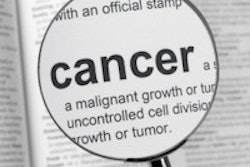SAN FRANCISCO - In a poster presentation at the American Academy of Periodontology's (AAP) 100th Annual Meeting, researchers from Brazil concluded that while periodontal treatment reduces the inflammatory markers of gingivitis and periodontitis, as well as the histological markers of disease, in all patients, women who are receiving treatment for breast cancer see less benefit from the treatment than "healthy" patients.
The association between periodontal disease and cancer has been "recently established," and the logic behind this association is that "inflammation is a common factor," lead author Daniela Bazan Palioto, DDS, PhD, from the department of oral and maxillofacial surgery and periodontology at the University of São Paulo School of Dentistry of Ribeirão Preto, and colleagues wrote. But they acknowledged that all the involved mechanisms still have to be "clarified." Periodontal infection and inflammation may be aggravated during chemotherapy and contribute to the systemic inflammatory process, they stated.
“Less favorable results were seen in those patients with cancer”
In a poster titled "Preliminary assessment of periodontal conditions in women with breast cancer undergoing chemotherapy," the researchers compared the reactions of 59 women, divided into four groups: healthy (16 patients), those with breast cancer without periodontal disease (15 patients), healthy but periodontally compromised (18 patients), and those with breast cancer who were also periodontally compromised (10 patients) and received periodontal treatment while also undergoing chemotherapy.
All the patients had four measurements taken at baseline, 45 days after baseline, and 90 days after baseline: probing depth, clinical attachment level, plaque index, and gingival index.
At baseline, as expected, those patients who were periodontally compromised had the largest probing depth, but at both 45 and 90 days, those patients with breast cancer who were also periodontally compromised had the largest probing depth. Gingival index scores varied from probing depth scores slightly, as at baseline and 45 days, the periodontally challenged patients had the worst measurement, but at the 90-day measurement, those patients who were periodontally compromised and had breast cancer had the highest score, although all groups improved their index considerably during treatment.
When measuring the clinical attachment scores, researchers did not find much change in scores, other than in the periodontally challenged group. In the most vulnerable group (periodontally challenged with breast cancer), scores did not improve greatly over the 90-day period.
The group of cancer patients who were periodontally challenged had less reduction in probing depth, more periodontal pockets, and overall a much higher risk of disease progression, the authors wrote.
Periodontal treatment reduces the inflammatory markers of gingivitis and periodontitis, as well as the hemotological markers, the authors concluded. But in this "initial observation period, less favorable results were seen in those patients with cancer," they noted.



















